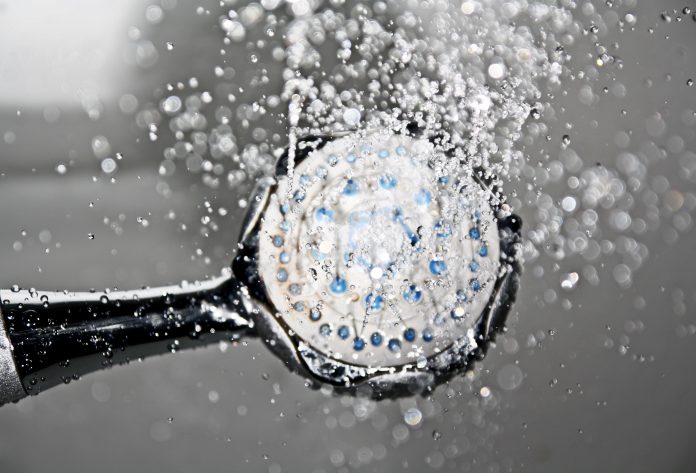If you’re someone who loves working out and going to the gym, you must’ve experienced the pain of turning on the shower only to find out that all the hot water’s gone, and you’re left with cold water to bath with after an intense workout. However, once you become familiar with the benefits a cold shower after workout brings about, you might not mind taking a cold shower as well. Here we’ve listed several reasons why you should and shouldn’t take hot showers after a workout. But first, let’s dig into how muscle growth takes place to help you understand the concept of showers better.
How Do Muscles Grow?
When you resist or lift heavy weights, you continuously challenge your muscles to go through something they’re not really used to, leading your muscles to grow. This process is called muscle hypertrophy. When your muscles’ fibers experience injury or damage, muscle hypertrophy swings into action. Your body responds by fusing the injured or damaged muscles’ fibers to repair them.
Your muscle growth is also greatly influenced by a few hormones, including insulin growth, human growth hormone, and testosterone. These hormones are responsible for carrying out a number of muscle-related activities taking place in your body. These activities include:
- Enhances tissue growth
- Stimulates anabolic hormones – a hormone that encourages protein synthesis and muscle development
- Activates satellite cells – a stem cell that encourages muscle growth
- Inhibits protein breakdown
- Improves the way your body handles proteins
Enough of the muscle-growth-related discussion. Now let’s investigate our obsession with post-workout showers and deciding which one is the best, hot or cold.
Hot Showers After A Workout
Hot showers are known for their muscle relaxing properties. They help in relieving muscle knots, tension and soreness. Not only this, but hot showers also stimulate our parasympathetic nervous system, making us feel tired. This is why many people prefer taking hot showers before going to bed and after a workout since it can help you sleep well. Hot showers can be pretty benefitting since they can:
- Help you in soothing muscle tiredness
- Help you in relieving your body tension
- Relax your muscles
- Help you get rid of blemishes caused by excessive sweating during a workout
- Give relief from respiratory symptoms
However, there’s always a bad attached to good. Hot showers:
- Can result in increased blood pressure
- Can cause itchiness
- Are capable of worsening skin-related diseases
- Cause your skin to feel irritated and dried out
Let’s move on and investigate the matter with a cold shower after workout. Does it really affect your gains?
Cold Showers After A Workout
While a significant number of people prefer taking hot showers after a workout, a cold shower after workout is equally preferred by many. Why? Because they’re capable of offering many benefits. Cold showers can:
- Repair and relax your muscles because cold water possesses regenerative properties
- Help your body maintain an ideal temperature
- Relieve sore muscles after an intense workout
- Boost weight loss
- Increase your blood circulation
- Make you feel refreshed and awake
- Help prevent cardiovascular diseases
- Increase oxygen intake
According to wellness coaches, cold water restricts and intensifies blood flow resulting in healthier skin. In addition to this, it makes your hair strong by closing the hair cuticle. Unlike hot water, cold water protects your sebum layer safeguard your hair and skin. Moreover, increased blood circulation causes blood in your deeper tissues to circulate faster; this property makes most experts recommend cold showers. Even though there’s hardly any research that regards either of the showers better than the other one, one can find the preferrable based on its positive and negative impacts. However, for obvious reasons, there are also cons attached to cold shower as well. Let’s check them out:
- Cold shower after workout delay muscle recovery
- Can cause your muscles to shrink
- Decreases testosterone by 10 percent
- Not ideal for sick people
- Can result in heart failure among people with heart diseases and thyroid problems
- May cause stroke
- Can result in shock among people with weakened immune systems
Verdict: Which Type Is Better?
You don’t want anything to become a hindrance in the way of your muscle growth. Therefore, it’s best to choose what is best for your gains. That having said, for some reason, both hot and cold showers can have both positive and negative impacts on your body. Therefore, why not opt for something that is neither hot nor cold?
Yes, a lukewarm shower is considered an ideal shower because it doesn’t go at extreme points that can hurt your body in any way. However, you can think of another option to try a shower encouraged since old times – a contrast shower. In this type of shower, you’ll have to take a bath in alternate cycles of extreme hot and extreme cold. Though not medically proven as well, this type of shower doesn’t tend to be harmful to your body. Therefore, you should do your research by taking different types of showers each day, starting from a cold shower, then taking a hot one, later trying lukewarm water, and finally doing a contrast. This way, you’d sooner find out what’s best for your body. It is crucial to keep track of your health when working out, hence why many smartwatches these days have health tracking features.














